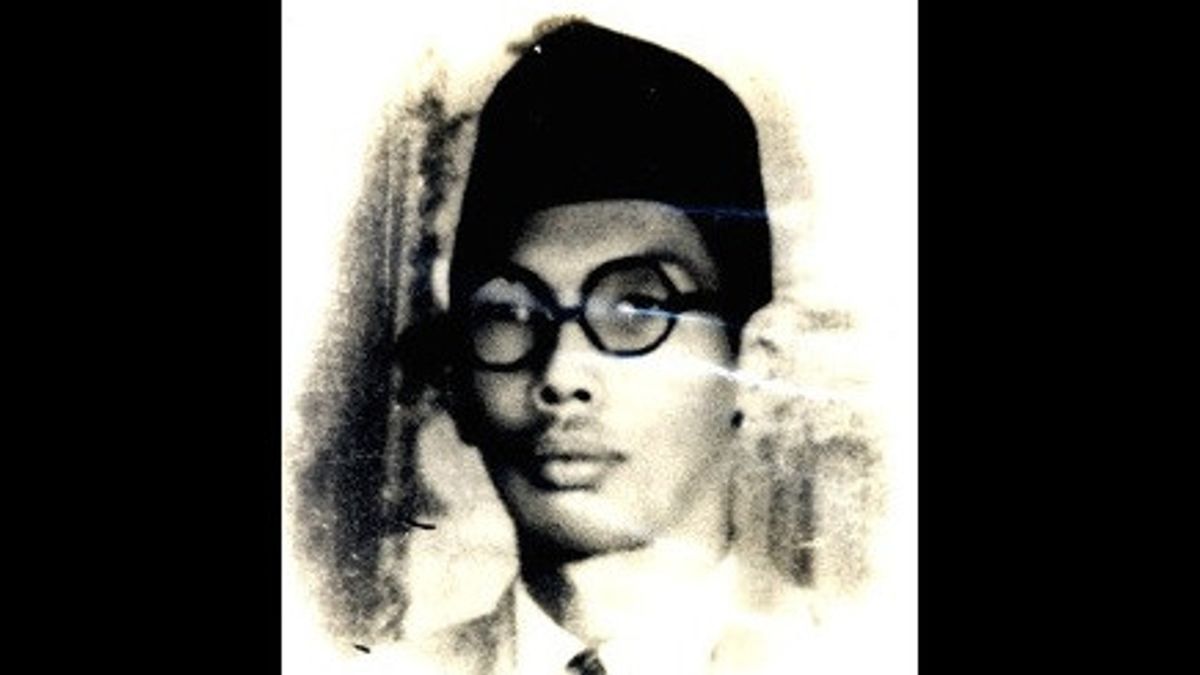JAKARTA - Wage Rudolf Supratman's violin friction divides the room at the Indonesische Clubgebouw Building. At the Second Youth Congress, October 28, 1928, it was the first time that the song Indonesia Raya was sung. Without rhymes. The history of the song Indonesia Raya to become the official national anthem of Indonesia has been covered with a tough journey. This song became controversial in the eyes of the Dutch, like a threat the colonial government kept trying to destroy.
One day in the mid-1920s, WR Supratman came across an article. It contained an invitation for Indonesian composers to create the Indonesian national anthem. Supratman also composed a song which at that time he called the "National Anthem".
The song was first played on a limited basis at the Second Youth Congress. Supratman was present at that time. He's not new. Supratman is a journalist.
Supratman first returned to Java Island in 1924, after years of accompanying his brother who lived in Makassar. In Java, Supratman works as a journalist in Bandung and contributes articles to the newspapers Kaoem Modeda, Kaoem Kita, and Sin Po.
When the First Youth Congress was held April 30-May 2, 1926, Supratman participated as a reporter for the Sin Po newspaper. It was from these lives that Supratman's interest in movement grew.
Supratman also contributed to creating many uplifting songs of struggle. His first creation was a song called From West to East.
Youth Congress IIAt the Second Youth Congress, Supratman met Soegondo Djojopoespito, who asked him to bring the song Indonesia Raya. However, considering the many repressiveness of the colonial government against the spirit of liberation - including through the creation of songs, finally the song Indonesia Raya was sung in violin tones, without lyrics.
Even so, a copy of the song script was delivered at the beginning of the event to some of the youth who attended the congress. The chant of the Indonesia Raya violin that day was greeted with thunderous applause from the audience.
It didn't take long. The song Indonesia Raya spreads all over. The report on the chanting of the Indonesia Raya song was delivered by the Sin Po newspaper. They published pamphlets with the lyrics of the song Indonesia Raya which were sold for 20 cents per sheet. Supratman received a royalty of 350 guilders for the publication of the pamphlet.
Several pamphlets distributed to fulfill people's requests were confiscated by the Dutch East Indies political intelligence service. The colonial government felt threatened by the echo of this song. It is feared that the song Indonesia Raya will trigger a spirit of independence and trigger a rebellion.
Supratman was also dragged into the interrogation. The colonial government questioned the use of the phrase "merdeka, merdeka" in the song. Supratman answered that the phrase was an alteration made by other youths. Supratman said the original lyrics of the Song Indonesia Raya for that part were: moelia, moelia.
Protests spread in many areas. The Dutch East Indies government also changed the declaration, from prohibition to restriction. Finally, the song Indonesia Raya could be sung in a closed room and without the lyrics "merdeka, merdeka."
So the national anthemThe hope of replacing the song Indonesia Raya came when Japan came to Indonesia and forced the Dutch to leave. Although not very smooth. Like the Netherlands, Japan also banned the song Indonesia Raya. Not only that. Japan also prohibits the raising of the red and white flag.
Then in 1944, when Japan's position in World War II was increasingly pressed, Japan made an agreement to liberate Indonesia. Terms and conditions applied. At that time, Japan felt it needed Indonesian fighters to survive.
At that time, independence figures established the Preparatory Committee for Indonesian Independence. At the same time, they also formed the National Anthem Committee.
The committee was led by a number of figures, ranging from Soekarno, Ki Hajar Dewantara, Darmawijaya, Kusbini, KH Mansyur, Mohammad Yamin, Sanusi Pane, Cornel Simanjuntak, to A. Subarjo and Utoyo.
The committee members changed a number of things and made improvements in the song Indonesia Raya. This refinement resulted in new lyrics that we know today.
Indeed, when it was created in 1928, Indonesian was not yet fully developed, it was still heavily influenced by Malay. This causes irregularities in the language of the song.
After Indonesia's independence on August 17, 1945, the Indonesian national anthem was finally established constitutionally as the national anthem on August 18, 1945, based on the 1945 Constitution (UUD).
The first Indonesian song was sung together on Independence Day, on Jalan Pegangsaan Timur 56, Menteng, Jakarta.
The English, Chinese, Japanese, Arabic, and French versions are automatically generated by the AI. So there may still be inaccuracies in translating, please always see Indonesian as our main language. (system supported by DigitalSiber.id)











